visiting apartments
USEFUL VOCABULARY
Air conditioning = aire acondicionado, a/a
Armor plated door = puerta blindada
Attic apartment = ático
Agreements = cláusulas (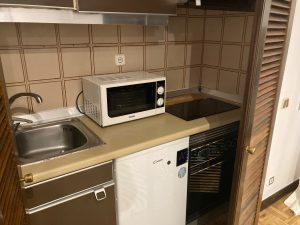 agreements specified on the lease)
agreements specified on the lease)
Bank guarantee = aval bancario
Bathroom = cuarto de baño, baño
Bathroom or, more often, half bath = aseo
Bedroom = dorm. / dormitorio
Brand new = a estrenar
Built-in closets (not terribly common in older buildings) = armarios empotrados, a/e
Central heating = calefacción central, c/c
City gas (cheap, safe & you never run out of it) = gas ciudad, gas/c
Commission (as in paid to a rental agency) = comisión
Community expenses for building (garbage pick-up, etc.) = (gastos de) comunidad
Concierge (man or woman who takes care of the building) = portero /conserje
Deposit = fianza / depósito
Doorman = portero
Electricity (bill) = luz
Elevator = ascensor
Empty = vacío
Exterior, facing the street as opposed to an inside patio = ext.
Furnished = amueblado
Furniture = mobiliario, muebles
Gas tank = gas butano
Ground floor = bajo
Guarantees (economical) = garantías
Individual heating = calefacción individual, c/i
Interior, facing an inside patio which may be pleasant/noisy = int.
Kitchen = cocina
Kitchen appliances, (fridge, etc.) = electrodomésticos
Landlord = arrendador / casero
Lease = contrato
Mezzanine = entresuelo
Pantry (often a part of the kitchen) = despensa
Paycheck = nómina
Rent price/monthly price = alquiler / alquiler mensual
Renovated = reformado
Rent (verb/noun) = alquilar/alquiler, arrendar/arrendamiento, or renta (noun, see “price” above)
Sell/for sale = vender/se vende
Sheets and towels included = incl. ropa de casa
Storage room = trastero
Street = calle, c/
Tenant = arrendatario
Utilities = gastos
Water closet = WC, baño
Water heater = caldera
USEFUL SENTENCES
- If your landlord asks you for your “nómina” (paycheck): En vez de una nómina, recibo un estipendio todos los meses porque tengo una beca. (Show Grant Authorization)
- Fianza (deposit): ¿Cómo/cuándo se devuelve la fianza cuando me vaya del piso en junio/julio del verano que viene?
- Amueblado (furnished). ¿La habitación está amueblada? ¿Qué muebles incluye?
- Compañeros de piso (roommates). ¿Cuánta gente vive en el piso? ¿Son estudiantes/trabajadores? ¿Qué edad tienen?
- Gastos (utilities). ¿El precio del alquiler incluye gastos (Internet, electricidad, agua, etc.? ¿Qué gastos incluye exactamente?
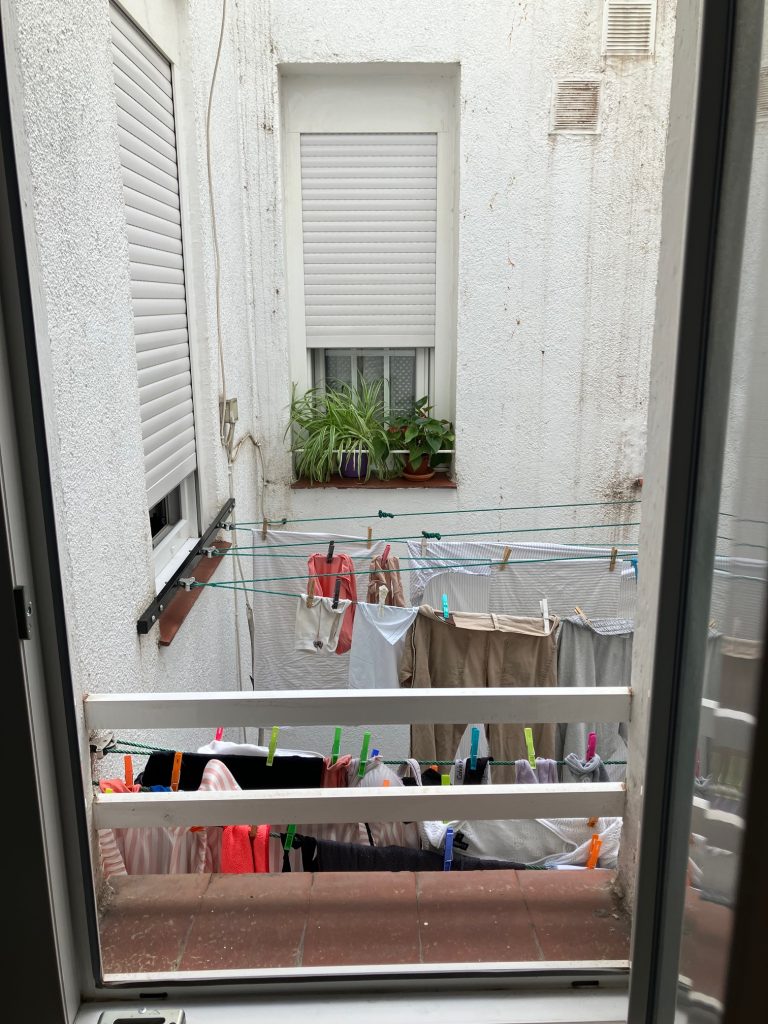
*Keep this list of Spanish terms and phrases handy as extra support for checking anything in the contract or for understanding the landlord better.
How often should I visit?
Recent grantees suggest scheduling about 2-3 visits per afternoon/evening and 6-7 visits on weekends. Sometimes, you find the right place on your first visit. Other times, you may visit over 15 flats before you find the right fit!
When should I visit?
If natural light is important to you, schedule an appointment during the day to see how bright the apartment gets. If you are extra sensitive to noise and the apartment is in a busy area, check it out during the weekend or in the evening. It’s a good idea to take a walk around the area both during the day and at night. Consider how far the apartment is from public transportation, if there are grocery stores nearby, a park, and other features that are important to you.
When you visit the apartment: Clarify who the person you are meeting with is in relation to the apartment – is it the landlord or a roommate?; do they live in the apartment? When going through the apartment, take your time and ask all of your questions.
FEATURES TO ASK ABOUT AT THE VISIT:
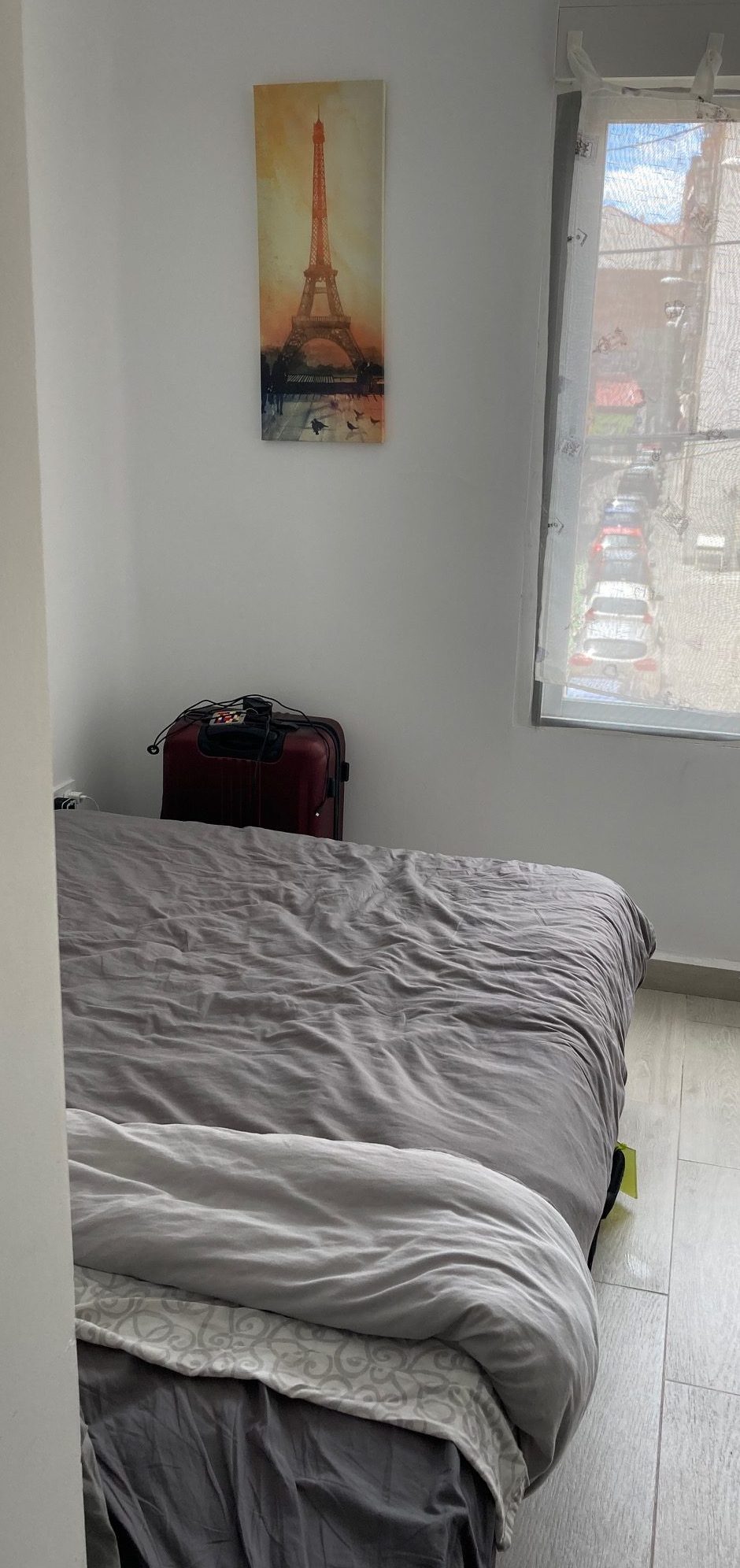
- Furniture – Explicitly ask what is included!
- Bathroom – how many people will share each bathroom?
- Kitchen -remember that some things are not typically found in Spanish apartments, like dishwashers and ovens. It is also very unusual to have a dryer – laundry in Spain is almost always air-dried outside or indoors by the radiators, especially in rainier places like Asturias or Galicia.
- Fire escapes and fire alarms are not common in Spanish apartments. Air conditioning is rare, so especially if you will be living in the south in the spring and summer you may want to purchase a fan.
- *Even if it says “no se puede fumar” in the ad, smoking might still be allowed somewhere in the apartment, so if this is a real dealbreaker for you, make sure to double check.
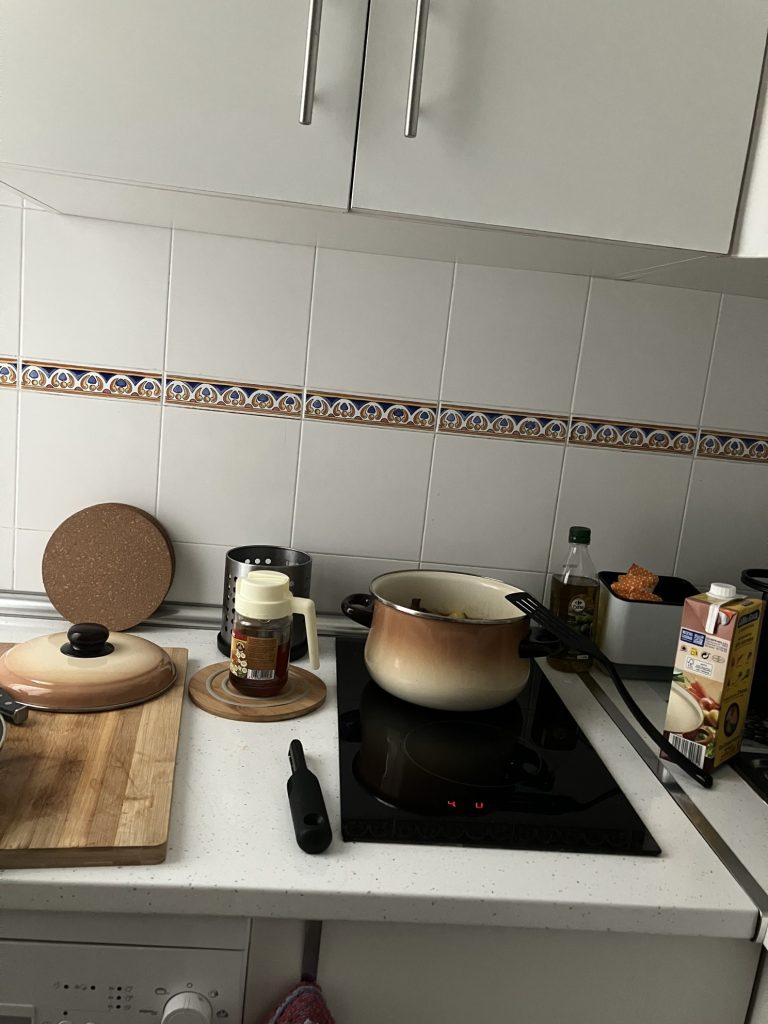
ADDITIONAL QUESTIONS:
- You might also want to ask if you can have guests for a weekend or if you need to clear it with the landlord or roommates beforehand.
- A few other tips from past grantees: Try to live with young professionals. Do keep in mind that in Spain, and especially in larger cities, it is completely normal for people in their 30s or 40s to also live in shared apartments. Also, some grantees have advised against living with a roommate who is also the landlord to avoid awkward situations.
- Confirm which utilities/gastos are included in the rent – this includes water, (gas) heating, electricity (la luz), Internet, etc. If there is no central heating, and the apartment only uses electric space heaters, the gastos (costs) could be very high during the cold months – electricity costs surprisingly much more in Spain – really, in Europe – than in the U.S. so, be wary of taking an apartment without heat. This goes for those of you even in Canarias or Andalucía, where even the winter months can get quite chilly, so you might still need to get a space heater.
THINGS TO CONSIDER:
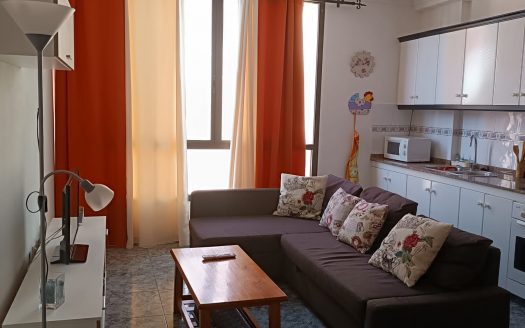
Price Range: Before beginning your search, you should calculate how much you are willing to spend on housing. Prices vary drastically from large cities to small towns, and from centrally located neighborhoods to the outskirts or suburbs. Approximate rental costs can be found online. Keep in mind that, in addition to rent, you will most likely have to pay for water, electricity, gas, and telephone and Internet service. As a very rough reference, recent grantees have been paying an average rent of around 450-600 €/month in central Madrid and Barcelona, and around 250-400 €/month depending on the region.
Location: Where you look for a place to live will depend on your priorities. You may want to be close to your place of work, or prefer to be downtown. You may want to have green areas or shopping centers at hand. Transportation is an important factor to consider when looking for housing. Find out if your destination has a metro system and what the bus service is like. If you have to commute, make sure you know what public transportation is available. You should also research and ask about potentially dangerous areas.
Characteristics: Make a list of things you would ideally like to have where you live, and the basic things you cannot live without. If the apartment or room is furnished (amueblado), ask what is included. Check the condition of all appliances (refrigerator, oven, washing machine). Ask about telephone and internet connections. Elevators are not common in older buildings, so think about whether you are willing to walk up four or five flights of stairs. Heating can be anything from central heat to individual gas heat to an electric radiator in your room, so ask about that as well. Air conditioning is not as common in Spanish homes as it is in the U.S. Check that your room has natural light, good ventilation, and that the noise level is adequate, especially at night. Check the water pressure and temperature in the shower, especially if the building is old.